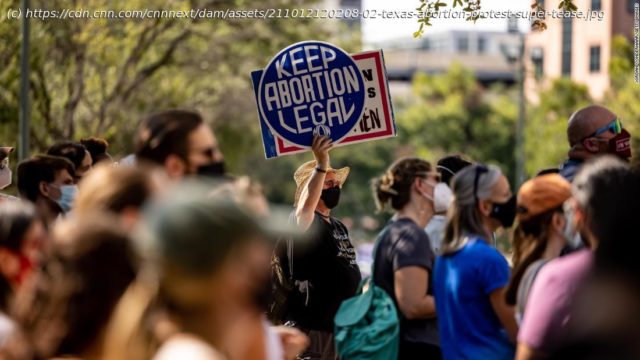The Texas Supreme Court on Friday issued a ruling that effectively foreclosed the last avenue abortion clinics had to challenge the state’s six-week limit on abortions in their current federal litigation.
This stage of the legal dispute before the Texas Supreme Court centered on the role state licensing officials did or did not have in enforcing the six-week ban, which the US Supreme Court has allowed to remain in effect. «Texas law does not grant the state-agency executives named as defendants in this case any authority to enforce the Act’s requirements,» the Texas court wrote. While dismissing most of a federal lawsuit that sought to preemptively block the law, the US Supreme Court ruled in December that abortion clinics could proceed in their lawsuit against a handful of state licensing board officials. The clinics warned that those officials could sanction providers for facilitating abortions outlawed by the ban. RELATED: Texas abortion seekers flooded out-of-state clinics after six-week ban went into effect However, on Friday, the state Supreme Court said that in its reading the law, known as Senate Bill 8, the officials did not play a direct or indirect role in its enforcement. The proceedings will now move back to the US 5th Circuit Court of Appeals, where it is likely the appellate court will now throw out what’s left of the clinics’ lawsuit. The law allows for people anywhere in the country to bring private state court lawsuits against those who facilitate an abortion after fetal cardiac activity is detected. That point is around six weeks into the pregnancy, when many people don’t know yet they are pregnant. The US Supreme Court had said in its December 5-4 ruling t hat the clinics could not seek federal court orders that would preemptively block state court officials from presiding over private enforcement lawsuits. The proceedings then traveled back to the 5th US Circuit Court of Appeals, perhaps the most conservative federal appeals court in the country.
Домой
United States
USA — Science Texas Supreme Court further limits challenges to state's restrictive abortion law






